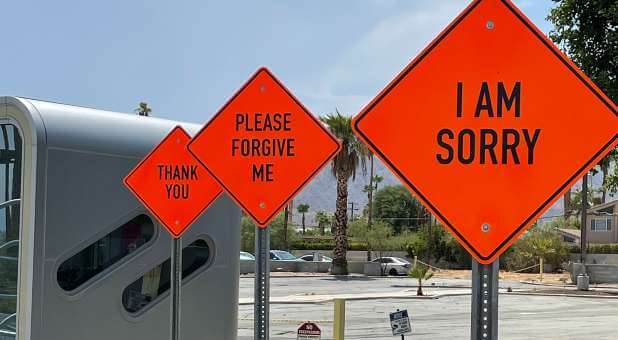The Six-Step Apology: A Relationship Changer
If you needed to go to someone because you had not treated them in the right way, what would you say is the appropriate thing to do? I think you would agree the appropriate thing to do is apologize. Let me tell you about a tool that we call the “six-step apology.” We are often told that this tool, this behavior, has saved relationships that appear to be broken forever. We have been told it’s actually saved marriages.
Today, often, we have reduced an apology to a quick “sorry” tossed over our shoulder as we walk out of the room or a mumbled “sorry about that,” or an “I’m sorry you felt that way.” We put the responsibility for any hurt feelings on the other person rather than taking responsibility for what we said.
So what is an appropriate apology? Is there a way to apologize that could really lead to a change in behavior and really save or grow relationships? We have found that this one does. So what is that? What do you do if someone comes to you because you’ve done or said something wrong? What do you do if you’ve done or said something wrong to someone and you feel bad about it? What do you do if you know you need to apologize? Here’s what an appropriate apology looks like.
Six Steps to Apologize
1. The first step is to state the offense. Say back to the other person whatever they say you did or said. State that back to them and say, “You are right. I did it. I did that.”
2. Then use these three simple words: “I was wrong.” That’s admitting you were wrong to say or do what you did.
3. And then next, apologize. It’s very simple. Say, “I am sorry.” Now if you were raised in a home where you were told you were a sorry son of a gun and that word has a different meaning for you, then just use the words “I apologize” so you don’t have to use a phrase with a particular word that makes you feel uncomfortable and takes your focus off your apology.
4. Step number four is to ask the other person to forgive you. Ask them, “Will you forgive me?” or “When you can, will you forgive me?” Here’s something to consider about asking these questions. Only you know if you have used forgiveness as a way to control and manipulate others. If you have, then ask them, “When you can, will you forgive me?” If you haven’t, then ask them right there on the spot, “Will you forgive me?” Now it doesn’t matter what their answer is. They don’t have to say yes or no but it is important that you ask.
5. Step number five is for you to ask for accountability. Tell that person, the one you hurt, “I give you permission to hold me accountable not to behave this way anymore.” I’ve got news for you. When we say enough times “I’m wrong,” “I’m sorry,” “Will you forgive me?” and we’re held accountable, our behavior changes. Remember, we’re not making the person accountable to hold us accountable. We’re giving them permission to hold us accountable and those are very different.
6. Step number six: Ask if there is anything else. “Is there anything else that I’ve done in our relationship that I need to apologize for?” And I’m telling you that when you do that, you are going to blow somebody away. Now if you decide to do that, remember that because of the way brains work in some people and the way that causes them to think, they may remember everything that you’ve ever done to them since you were in the second grade. That is just part of the way some brains work. Although you may not remember what you did last week because of the way your brain works, just know that if you ask that sixth question, you need to be ready for the answer so that you don’t respond negatively or defensively. And, instead, just write down whatever they say.
This is what I would like for you to do next. I want you to write down a name or some names of people that you might owe an apology to. If the only way you are able to communicate with that person now is by phone, go ahead and call them. Set up a meeting. Meet with them face to face and use that six-step apology. Then just see what happens in that relationship. {eoa}











































